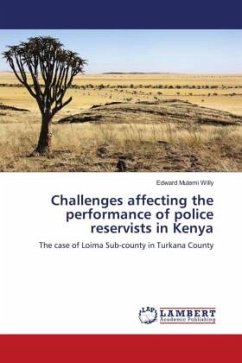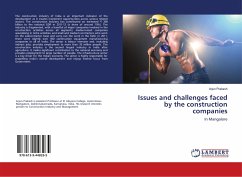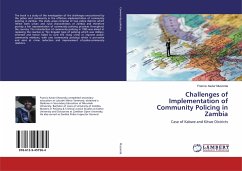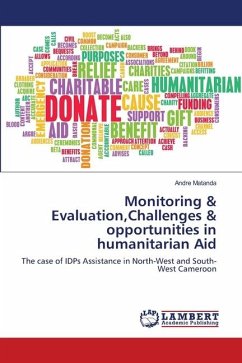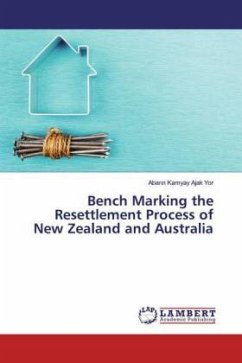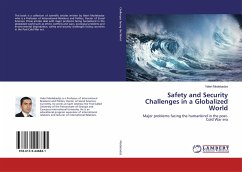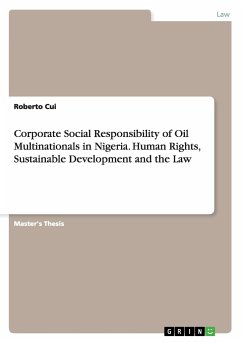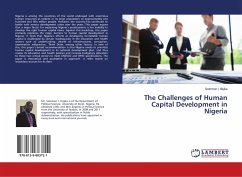
The Challenges of Human Capital Development in Nigeria
Versandkostenfrei!
Versandfertig in 6-10 Tagen
27,99 €
inkl. MwSt.

PAYBACK Punkte
14 °P sammeln!
Nigeria is among the countries of the world endowed with enormous human resources as evident in its large population of approximately one hundred and fifty million people. However, the country has continued to battle with serious development crises over the years. This paper argues that a major factor for explaining Nigeria's predicaments is her inability to develop the right human capital mixes. Against this backdrop, this paper primarily examines the major barriers to human capital development in Nigeria. It finds that Nigeria's efforts at developing formidable human capital is challenged by...
Nigeria is among the countries of the world endowed with enormous human resources as evident in its large population of approximately one hundred and fifty million people. However, the country has continued to battle with serious development crises over the years. This paper argues that a major factor for explaining Nigeria's predicaments is her inability to develop the right human capital mixes. Against this backdrop, this paper primarily examines the major barriers to human capital development in Nigeria. It finds that Nigeria's efforts at developing formidable human capital is challenged by certain inadequacies in the education and health sectors such as underfunding, dearth of infrastructures, corruption, examination malpractice, "Brain Drain, among other factors. In view of this, this paper's broad recommendation is that Nigeria needs to prioritize human capital development in its national development plan, and thus review its education and health policies and increase budgetary allocation to these two critical sectors to meet UNESCO and WHO specifications. The paper is theoretical and qualitative in approach. It relies mainly on secondary sources for its data.



